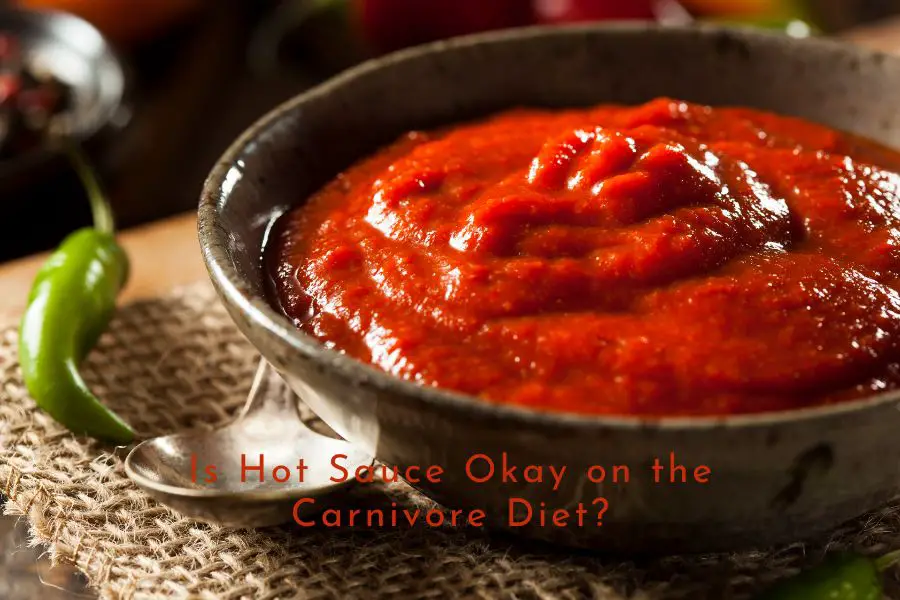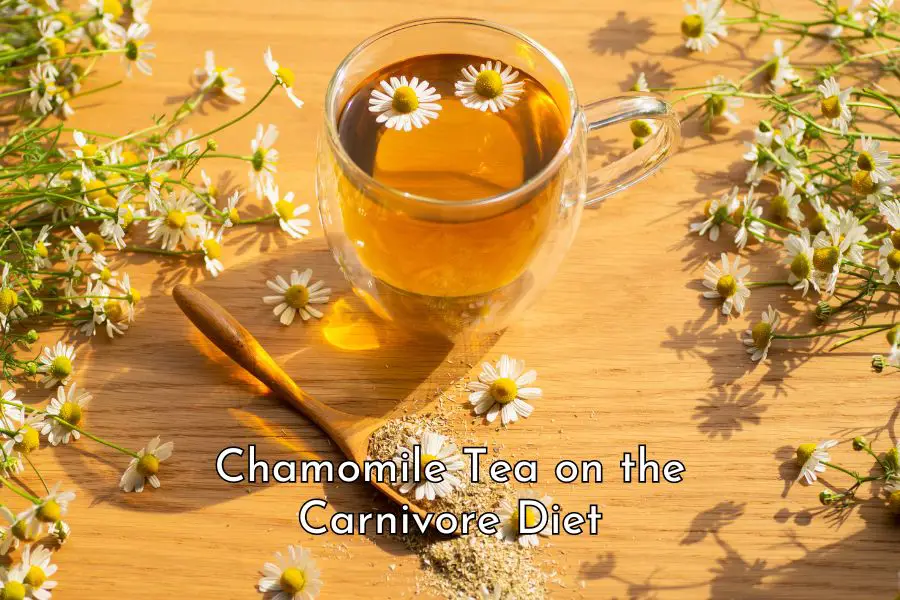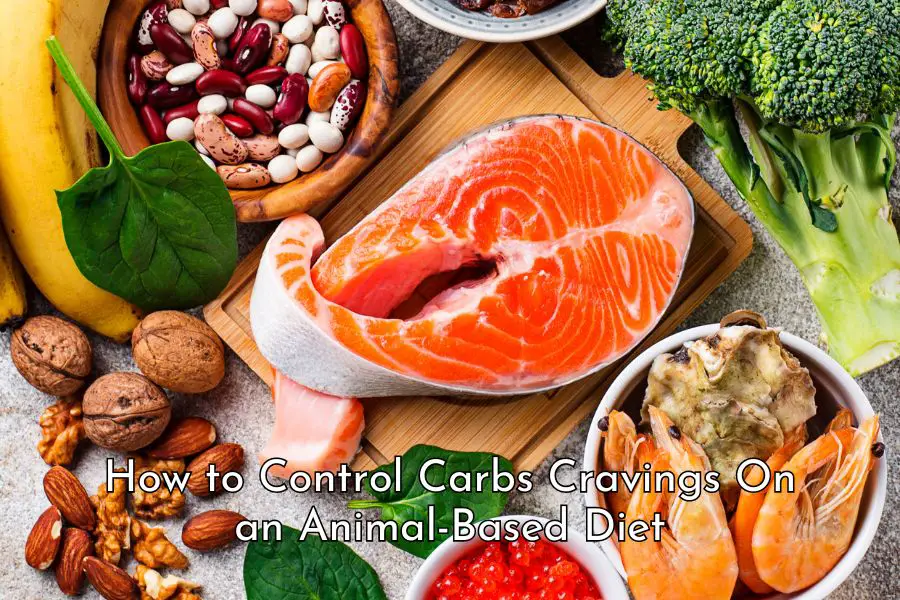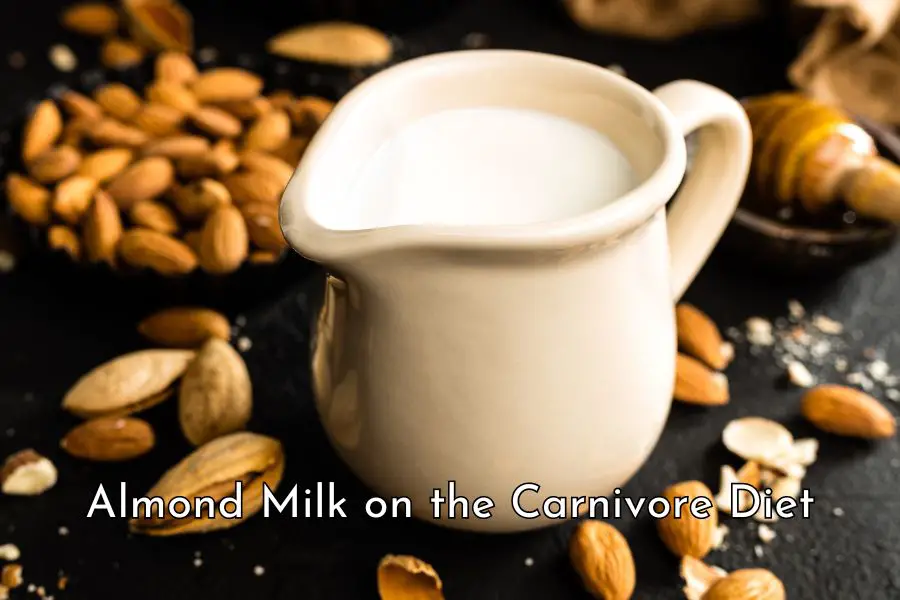Hot sauce is a plant-based condiment and shouldn’t be part of a strict carnivore diet. However, considering that most people would use only a minimum amount of hot sauce as a flavor enhancer, we will explore in this article whether incorporating hot sauce is acceptable within the context of a carnivore diet.
What’s in Hot Sauce?
Hot sauce is a type of condiment made using three main ingredients: chili pepper, vinegar, and salt. Some brands also incorporate additional ingredients like vegetables, seasonings, thickeners, and preservatives.
Below are a few examples of what you can expect to find in popular commercial hot sauces.
Aged Cayenne Red Peppers, Distilled Vinegar, Water, Salt and Garlic Powder.
Frank’s RedHot
Water, Peppers (Arbol and Piquin), Salt, Vinegar, Garlic Powder, Spices and Xanthan Gum.
Cholula
Vinegar, Aged Peppers (Peppers, Salt, Vinegar), Water, Xanthan Gum and Sodium Benzoate (to Preserve Freshness and Flavor).
Texas Pete
Aged Red Cayenne Peppers, Distilled Vinegar, Salt.
Crystal Louisiana
Distilled Vinegar, Red Pepper, Salt.
Tabasco
White Grape Vinegar, Aged Jalapeno (28%), Tomato Puree, Rapeseed Oil, Garlic, Tamari (Water, SOYABEANS, Salt, Spirit Vinegar), Salt, Coconut oil, Citrus Fibre.
Buffalo Hot Sauce
Tomatoes, Spirit Vinegar (From Rye), Sugar, Carolina Reaper Chilli (6%), Garlic Paste, Birds Eye Chilli Paste, Maize Thickener (1422), Dried Onion, Black Garlic Paste (1.5%), Natural Colour (160c), Salt, Natural Flavour, Food Acid (296), Spice, Thickener (415).
Bull’s-eye Chilli Hot Sauce
Nutrients in Chili Pepper
As the main ingredient in hot sauce is chili pepper which gives it the pungent or spicy taste, we will look at the nutritional content of chili pepper.
Chili pepper is low in calories and rich in many vitamins and minerals. A 100-gram serving of raw red chili delivers: [1]
- Calories: 40 cal
- Protein: 1.89 g
- Vitamin A: 48 mcg (5% DV)
- Vitamin C: 144 mg (160% DV)
- Vitamin E: 0.69 mg (5% DV)
- Vitamin K: 14 mcg (12% DV)
- Niacin: 1.24 mg (8% DV)
- Vitamin B6: 0.506 mg (30% DV)
- Folate: 23 mcg (5% DV)
- Vitamin B5: 0.201 mg (4% DV)
- Phosphorous: 43 mg (3% DV)
- Magnesium: 23 mg (5% DV)
- Zinc: 0.26 mg (2% DV)
- Selenium: 0.5 mcg (1% DV)
- Copper: 0.129 mg (15%)
- Manganese: 0.187 mg (8% DV)
- Iron: 1.03 mg (6% DV)
- Potassium: 322 mg (7% DV).
Chili pepper, the main ingredient in hot sauce, does indeed have a very high nutritional value. However, please keep in mind that the nutrient values provided above are based on a 100-gram serving size. Most peoples typically consume significantly less chili in a single day or per meal, usually only about one-tenth of this serving size or less. Consequently, the nutritional impact of using chili as a spice is quite minimal.
Anti-Nutrients in Chili Pepper
In addition to its beneficial nutrients, chili pepper also contains a number of anti-nutrients such as phytate, oxalate, lectin, tannin, and capsaicin. [2, 3]
Phytate
Phytate, also known as phytic acid, is a plant compound found in many plant-based foods such as seeds, beans, legumes, grains, and nuts (e.g. wheat, maize, rice, barley, oat, peanut, mung beans, and soybeans). Phytate interferes with nutrient absorption because it can bind to minerals, such as calcium, iron, magnesium, manganese, and zinc. [4, 5]
The amount of phytate in chili pepper can vary depending on the type of chili pepper. A study found that there was about 25 mg of phytate per 100 gram of chili pepper. [6]
Oxalate
Similar to phytate, oxalate, also known as oxalic acid, is another anti-nutrient found in a wide range of plant-based foods, for example, spinach, rhubarb, beets, Swiss chard, almonds, cashews, peanuts, lentils, chocolate, tea, raspberries, dates, etc. [7, 8, 9, 10]
Oxalate can bind to minerals, such as calcium, iron and magnesium in the digestive tract, forming insoluble oxalate crystals and reducing the absorption of these minerals. Excessive intake of oxalate over time can lead to potential nutrient deficiencies, build up oxalate crystals in joints, muscles and organs and cause many health problems such as kidney stones and acute and chronic kidney diseases. [11, 12, 13, 14, 15]
A study found that there was 279 to 326 mg of oxalate per 100 gram of chili pepper, depending on the pepper variety. [16]
Lectin
Lectins are carbohydrate binding proteins that can be found in many plant-based foods such as beans, lentils, potatoes, peas, wheat, tomatoes, garlic, banana, peanuts, chickpeas, and nuts. [17, 18, 19]
Because lectins have the ability to survive digestion and bind to the lining of the digestive tract, they can cause damage to the gut cells, interfere with nutrition digestion and absorption and cause intestinal permeability, leaky gut syndromes, and other health problems. [20, 21, 22, 23]
In addition to its lectin content, chili pepper belongs to the nightshade family (e.g. tomatoes, egg plant, pepper, and potatoes) which is well known for their two toxins, alkaloids and lectin, both of which can have serious health implications in some people. [24, 25, 26, 27, 28]
Tannin
Tannins are naturally occurring compounds found in many plant-based foods and drinks (grapes, persimmons, apples, berries, cereals, nuts, chocolate, seasonings, tea, coffee, and red wine). [29, 30, 31]
Tannins have a distinctive astringent taste and are known for their ability to bind to and precipitate proteins, resulting in the formation of the precipitate. They also bind with digestive enzymes and can adversely interfere with digestion and metabolism. For example, tannins have been found to interfere with the absorption of iron by binding to non-heme iron in the stomach and intestines. [32, 33, 34, 35 36]
A study found that there was 17 to 25 mg of oxalate per 100 gram of chili pepper, depending on the pepper variety. [37]
Capsaicin
Capsaicin is the compound that gives you the spicy, hot sensation when chili peppers or hot sauce are consumed.
Capsaicin has been found to have potential health benefits (more on this below), however, it can also cause health issues such as pain, inflammation, headaches, heartburn, hypertension, cough, skin and throat irritation, worsening irritable bowel syndromes, and even increased cancer risk. [38, 39, 40, 41, 42, 43, 44, 45, 46, 47]
Antioxidants in Chili Pepper
Chili pepper is also known for containing a variety of antioxidants, including capsaicin, flavonoids, phenolics, carotenoids, and beta-carotenes. These antioxidants play a vital role in fighting free radicals and lowering the risk of chronic diseases. There is also some evidence of the positive impact that chili pepper has on calorie intake and weight loss. [48, 49, 50, 51, 52]
Is Hot Sauce Okay on the Carnivore Diet?
Although hot sauce has both nutrients and anti-nutrients with negative health implications, our view is that it is fine to have hot sauce on the carnivore diet because it is usually consumed in an extremely small quantity as a flavor enhancer.
You will consume some anti-nutrients as a result, but because the typical daily hot sauce intake is usually very small, it should not pose significant concerns for those in good health.
However, individuals with specific health conditions such as irritable bowel syndrome, compromised gut health, or a history of cancer may want to avoid hot sauce as a precautionary measure.
As to the nutritional value of hot sauce, it is generally negligible due to the minimum intake. In addition, if you are already following the carnivore diet, there is generally no need to consume hot sauce for its nutritional content, as carnivore foods are extremely rich in essential nutrients.
Healthier Hot Sauce Options
If you want to use hot sauce, opt for those made from just chili pepper, vinegar and salt and avoid the ones with added sugar, additives, preservatives, or artificial flavors.
If you’re unable to find a hot sauce that suits your preferences, making your own hot sauce is a relatively straightforward process
Other posts you might be interested in:
Can You Have Mayonnaise on the Carnivore Diet?
Is Diet Coke Okay on the Carnivore Diet?
Are Eggs Okay on the Carnivore Diet?
Can You Eat Avocados on the Carnivore Diet?
Is It Okay to Eat Chicken on the Carnivore Diet?
Can You Drink Milk on the Carnivore Diet?
Do You Need to Eat Fish on the Carnivore Diet?
Is It Okay to Eat Bacon Every Day on the Carnivore Diet?
Is Cheese Okay on the Carnivore Diet?
Disclaimer: The information in this post is for reference purposes only and is not intended to constitute or replace professional medical advice. Please consult a qualified medical professional before making any changes to your diet or lifestyle. Please check out our disclaimer for more detail.





